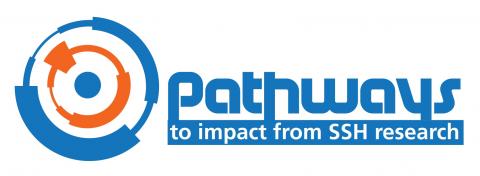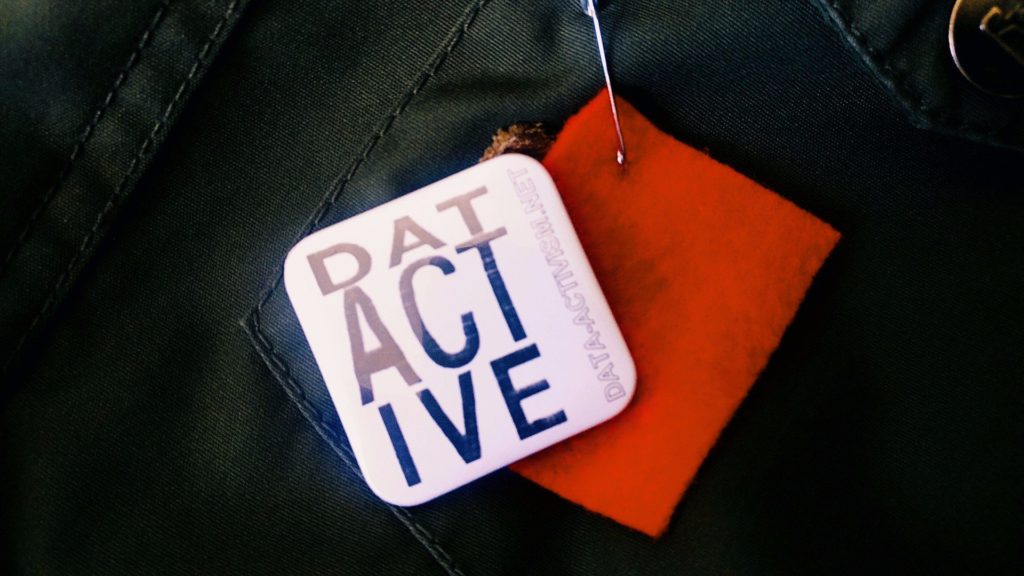by Lonneke van der Velden
Last month, I was invited to be a respondent (together with Harriet Bergman) for the launch of Geert Lovink and Ned Rossiter’s latest book, Organization After Social Media. The book is a collection of essays which re-interrogate the concerns and contributions of social movements and counter-cultural collectives in light of a significant contemporary problem: the existence of tech-monopolies such as Google and Facebook.
If social media cannot deliver on their promise to help collectives organize, how then should movements proceed? How to make such movements sustainable? The authors invite us to reflect on these issues through central concept of ‘organized networks’, or ‘orgnets’.
I liked many aspects of the book, but will highlight here two things I found interesting from the perspective of DATACTIVE’s own concerns. The first has to do with a re-evaluation of encryption, and the second with where we search for historical and theoretical lessons to help us organize ‘after social media’.
Re-evaluating encryption?
One thing I read in the book is a re-evaluation of encryption. Encryption is presented, not as an individual intervention, but as an intervention with a potential to allow for the emergence of collective forms. “The trick,” the authors tell us, “is to achieve a form of collective invisibility without having to reconstitute authority” (p. 5).
I think this collective potential of encryption is interesting. Research into activism in the UK after the Snowden revelations (Dencik, Hintz & Cable 2016) showed that digital rights groups tended to operate in a rather specialized space demarcated from issues championed by other groups and organizations. Digital rights organizations speak about privacy and freedom of speech, but hardly touch upon other social issues. And vice versa: organizations that work on, for instance, social justice issues, tend to regard digital rights as a working package for those specific NGOs that are dedicated to privacy. Encryption does not feature as a strategy that is part of their activist work. This has only partly to do with a lack of knowledge. What’s more, activists told the researchers that they want to do things in public, and using encryption is associated with having something to hide. This is a reductive summary of some of the findings by Dencik and others, but the study provides food for thought about how encryption is often precipitated.
What Lovink and Rossiter’s book nicely does is show that this is not the only possible way to conceive of encryption, opening up a different interpretation. Not one that stages privacy or security, which is a discourse about protection, but one that forefronts organized unpredictability, which is a more productive discourse about what encryption has to offer in terms of collective organization. This idea might be more interesting for activist groups; that is, if they are not interested in hiding, they might well want to remain unsuspected and surprising.
Against the background of the analysis that social media and algorithms make people readable and predictable, infrastructures that help organize unpredictability become important. In fact, from the discussion that followed with the authors during the book launch, it turned out that many of the concerns in the book relate to organizing unpredictability: merging the inventive (as exemplified by tactical media) with a wish for sustainability. How to build digital infrastructures that allow for the disruptive qualities that tactical media had in the past?
Some questions remain. Technologies of encryption are not infrastructures that can emerge out of the blue: they in turn need organized networks and communal work to remain up to date. Together with the audience at the book launch, we had an interesting back and forth about whether a notion of ‘community’, and community struggles, was needed.
Realizing organized networks
Another thing we talked about that evening was the tension between organized networks as a concept and as actually-existing practices. As the authors write: “Organized networks are out there. They exist. But they should still be read as a proposal. This is why we emphasize the design element. Please come on board to collectively define what orgnets could be all about.” (p. 16)
Hence, the authors invite anyone who has been part of an organized network, or thinks that he or she had been part of one, or wished that their network had been more organized, to ‘fill in’ their core concept. That means that much is left open in the book to the inventive powers of orgnet-organizers.
Technological infrastructures are an exception: the book is quite prescriptive in this regard, arguing for example that servers should not be centralized, and that we should prevent the emergence of tech-giants and develop alternative protocols and new spaces for action.
I could not help but wonder about the other kinds of prescription that are not so present in the book. Might we also offer prescriptive accounts in respect to things social movements experience over and over again, such as burnouts, internal strife, sexual harassment, and all things that hinder the sustainability of networks? And shouldn’t we reach out for documentation from, say, social movement studies or feminist histories, in addition to media theory? I am thinking about these in echo of Kersti’s and others’ discussion around community and critical community studies.
All in all, given that the focus of Lovink and Rossiter’s book is on forms of organization ‘after social media’, the choice of focusing on (alternative) socio-technical infrastructures is as understandable as it is valuable in itself. Indeed, it is an issue our research group cares about a lot; we hope to contribute to some of the causes laid out in the book.
The book can be ordered here and is also freely available online in pdf.
Lonneke van der Velden is a lecturer at the department of media studies at the University of Amsterdam. Her research deals with conceptualizations of internet surveillance and internet activism. She is also on the Board of Directors of Bits of Freedom.
Dencik, Lina, Arne Hintz, and Jonathan Cable. 2016. “Towards Data Justice? The Ambiguity of Anti-Surveillance Resistance in Political Activism.” Big Data & Society 3 (2): 1–12. https://doi.org/10.1177/2053951716679678.
Rossiter, Ned, and Geert Lovink. Organization after Social Media. Minor Compositions, 2018.









